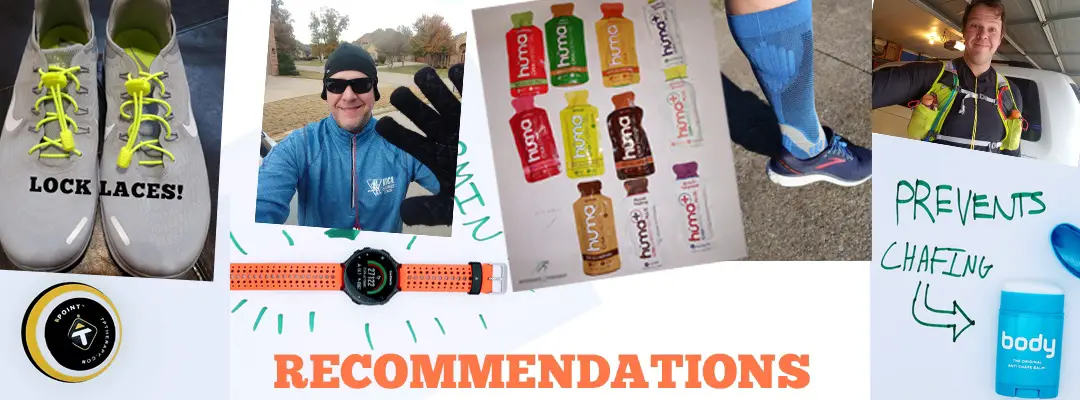Running isn’t necessarily bad for your knees, although improper form can cause damage. If you run with proper form, you can reduce your chances of knee injuries and osteoarthritis.
When Is Running Bad For Your Knees?
Have you ever wondered “Is running bad for your knees?” We’ve all heard that statement before, but is it true or is it a myth? On the whole, it is a myth, but it has a grain of truth in it – which is probably where the myth came from.
Running can be bad for your knees in a few different circumstances. Firstly, it may cause knee damage if you ignore the warning signs your body is giving that you have exercised enough. If your knees are starting to hurt or you have injured one and you aren’t making allowances for that fact, you are likely to do damage to your knees.
Running can also be damaging to your knees if you are carrying a lot of weight, as this places extra stress on the joints. If you are overweight or running with a bag or some other object, you need to take more care.
If you are a high-intensity, high-volume runner, you may eventually start to suffer from some knee pain, which is why it is important to blend running with other activities and spend time strengthening your joints.
A greater exercise that many individuals partake in while nursing a sore knee is aqua jogging. This is a great exercise for individuals that need a little less impact on the joints. Check out my detailed post on what aqua jogging is and how to get started with simple routines.
Benefits Of Running For Your Legs
There are a lot of benefits from running, and these include a decreased chance of leg injury. By toning and strengthening your muscles, you make them better able to stand up to general everyday wear and tear, making you less likely to injure yourself if you trip or take a misstep. Weak muscles are much more prone to injury.
Running may also reduce your chances of both hip and knee osteoarthritis, contrary to popular belief.
In 2017, a review of 25 running studies, explored the correlation between running (either for competition or recreation) and osteoarthritis. It found that only 3.5% of recreational runners suffered from arthritis in their hips or knees (Alentorn-Geli et al., 2017). By comparison, 10.2% of non-runners were likely to suffer from it.
Therefore, running can help to prevent leg injuries such as sprained ankles or twisted knees, and it can also reduce your chances of osteoarthritis provided you run in moderation.
Overall Health Benefits Of Running
There are many health benefits to running, most of which are well-known. Firstly, running is a great way to lose weight, although if you are very overweight, you need to run with due care.
Running can strengthen your bones, as it is counted as a weight-bearing exercise. It also – perhaps more obviously – strengthens and tones muscles, and improves your cardiovascular health.
Furthermore, running can improve your breathing, help you to sleep better, and possibly even make you more resistant to certain diseases, such as cancer. Further study is needed to better understand these benefits, however.
Related: 12 Health Benefits Of Running You Shouldn’t Ignore!
If You’re Injured Don’t Run
If you are injured, you shouldn’t hit the track. A minor injury can become a major injury very quickly and easily if you don’t treat it with respect and rest properly.
It is always best to consult a medical expert if you have injured yourself. Don’t get back on the track, even if the injury occurred in an unrelated sport. While running is excellent exercise, it does place stress on the body, and you should not risk exacerbating damage you have already done.
If you injure yourself while running, it’s very important to stop, do some gentle stretching to minimize soreness after the run, and then go home for the day. Don’t try to power through an injury, or you could do permanent damage.
Use The Run/Walk Method
Many runners employ the run/walk method, even when they are experienced. This method results in better training because it lets you run for a longer duration without putting undue stress on the joints and muscles.
The run/walk method means that you slow to a walk every so often. Setting the ratio of walking to running is entirely up to you and your fitness level. Incorporating walking into your run will help make running safer and better for you.
Strength Train To Strengthen The Muscles Around Your Knees
Strength training your knees is a great way to help them hold up to the stress of running and prevent injury. Some good exercises include:
- A hamstring stretch
- A hamstring curl
- A half-squat
- Calf raises
- Leg extensions
Perform Dynamic Stretching Before Running To Prevent Injury
You may have heard of dynamic stretching, and this is how you should warm-up for a run. Dynamic stretching is stretching that involves movement, rather than holding different positions. It gets the muscles active and ready to exercise.
Dynamic stretching before a run is better because it doesn’t put stress on muscles that are not yet warmed up and ready for use. If you try to hold a stretch with unprepared muscles, you’re much more likely to injure yourself.
Perform Static Stretching After Running To Decrease Soreness
Static stretching should only be performed after your run. Simply hold and stretch, often for about 15 – 30 seconds. Doing this sort of stretch lengthens the muscles and reduces soreness, but it is not good to do it before running, as it exposes you to injury and may lessen your ability to react quickly.
Here are the best post-run static stretches to perform after a run.
Summary
Running is not bad for your knees unless you over-train, ignore injuries, or go to the extremes of running. On the contrary, recreational running is a great way to build up your strength, protect yourself from injury, and reduce your risk of osteoarthritis.
Being aware of your body, complementing your running with other forms of exercise, and practicing moderation are all important aspects of making running healthy, safe, and beneficial.
| Help support me and subscribe to my YouTube channel. YouTube video - 30 ways to make your runs less painful! Coach Scott's Credentials:
|
To sign up for a FREE half marathon training schedule, log sheet, and pace predictor CLICK HERE.

Recommended gear for runners
Connect with me:
| facebook.com/BeginnerToFinisher/ |
References
https://www.webmd.com/fitness-exercise/features/does-running-damage-your-knees#1
https://www.nm.org/healthbeat/healthy-tips/fitness/is-running-bad-for-your-knees
https://www.betterhealth.vic.gov.au/health/healthyliving/running-and-jogging-health-benefits
https://www.healthline.com/health/exercises-for-knee-pain#strengthening-exercises


5 thoughts on “Is Running Bad For Your Knees? Find Out How To Strengthen Your Knees?”